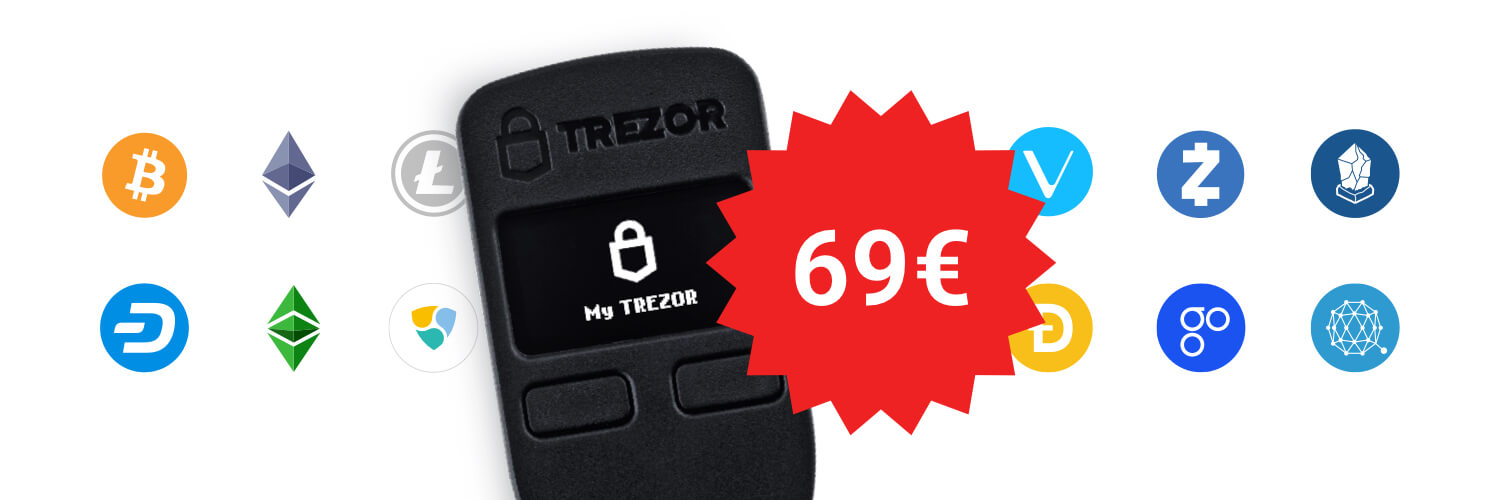Is blockchain wallet for your cryptocurrencies secure? Blockchain is a cutting-edge database technology that powers almost all cryptocurrencies. A blockchain makes it incredibly difficult to hack or cheat the system by spreading identical copies of a database across an entire network. While cryptocurrency is now the most popular application for blockchain, the technology has the potential to serve a wide range of uses.
What is a Blockchain?
A blockchain is a distributed digital ledger that contains any type of data at its core. Cryptocurrency transactions, NFT ownership, and DeFi smart contracts can all be recorded on a blockchain.
While any traditional database can hold this type of data, the blockchain stands out because it is completely decentralized. Many identical copies of a blockchain database are held on various computers scattered across a network, rather than being maintained in one spot by a centralized administrator—think of an Excel spreadsheet or a bank database. Nodes are the individual computers that make up the network.
How does Blockchain works?
The name “blockchain” isn’t a coincidence: the digital ledger is frequently referred to as a “chain” comprising discrete “blocks” of data. A new “block” is formed and attached to the “chain” as new data is periodically added to the network. This entails all nodes updating their blockchain ledgers to the same version.
Why is blockchain considered highly safe? It’s due to how these new blocks are formed. Before a new block can be added to the ledger, a majority of nodes must check and certify the legitimacy of the new data. They might include verifying that new transactions in a block aren’t fraudulent, or that currencies haven’t been spent more than once in a cryptocurrency. An isolated database or spreadsheet, on the other hand, allows a single individual to make changes without oversight.
Once there is consensus, the block is added to the chain, and the underlying transactions are recorded in the distributed ledger, explains C. Neil Gray, a partner at Duane Morris LLP who specializes in fintech. From the beginning of the ledger to the present, blocks are securely linked together, producing a secure digital chain. Which goes hand to hand with how blockchain wallet is secure.
Cryptography is used to secure transactions, which means nodes must solve complex mathematical equations to complete a transaction.
As explained by Sarah Shtylman, fintech and blockchain counsel with Perkins Coie, “Nodes are often rewarded with fresh quantities of the blockchain’s native currency”—e.g., new bitcoin on the bitcoin blockchain—as a reward for their work in validating changes to the shared data.”
Both public and private blockchains exist. Anyone can participate in a public blockchain, which means they can read, publish, and audit the data on the blockchain. Because no single authority controls the nodes, it is extremely impossible to change transactions logged on a public blockchain.
A private blockchain, on the other hand, is managed by a company or group. It is the only one that can select who is invited to the system, and it has the power to change the blockchain. This private blockchain procedure is comparable to an in-house data storage system, with the exception that it is distributed among numerous nodes to boost security.
What is a Blockchain wallet?
A blockchain wallet is a cryptocurrency wallet that lets users manage several cryptocurrencies, such as Bitcoin and Ethereum. A blockchain wallet makes it simple to swap money. Because transactions are cryptographically signed, they are safe. The wallet may be accessed from any online device, including mobile devices, and the user’s privacy and identity are protected. As a result, a blockchain wallet includes all of the characteristics required for safe and secure fund transfers and swaps between participants.
It’s pretty similar to sending or receiving money through PayPal or any other current payment method, only you’re using cryptocurrency instead. Electrum, Blockchain.info, Jaxx, Mycelium, Samurai, and the Bitcoin paper wallet are all examples of blockchain wallets. There are many more options depending on your demands and the level of security you desire.
How does a blockchain wallet work?
Let’s start with a definition of private and public keys and how they relate to a blockchain wallet. When you create a blockchain wallet, you will be given a private key and a public key that are linked to your wallet. As an example, consider email. You give someone your email address if you want to get an email from them.
Giving out your email address, however, does not imply that others will be allowed to send emails from your account. To do so, someone would need to know your email account’s password. A public key and a private key are used in a similar way in blockchain wallets. A public key is comparable to an email address in that it can be shared with anyone. When your wallet is created, a public key is created as well, which you can share with anyone to accept funds.
The private key is a closely guarded secret. It’s similar to your password in that it shouldn’t be hacked and shouldn’t be shared with anybody. You spend your money using this private key. If someone obtains access to your private key, there is a good chance that your account will be hacked, and you will lose all of your cryptocurrency deposits.
Types of Blockchain wallet
There are two types of blockchain wallets based on private keys: hot wallets and cold wallets. Hot wallets are similar to the wallets we use for everyday transactions, and they are user-friendly. Cold wallets are similar to vaults in that they hold cryptocurrency in a secure manner. So is a blockchain wallet secure? Find out by the type of wallet.
Hot wallets and Cold wallets
Hot wallets are online wallets that allow you to send and receive cryptocurrencies instantly. They can be found on the internet. Coinbase and Blockchain.info are two examples. Cold wallets are digital offline wallets that sign transactions offline before disclosing them online. They are not kept in the cloud on the internet; instead, they are kept offline for maximum protection. Trezor and Ledger are two examples of cold wallets.
Private keys are saved in the cloud with hot wallets for speedier transfers. Private keys are saved in cold wallets on separate hardware that is not linked to the internet, the cloud, or a paper document. Hot wallets are easy to access online 24/7 and can be accessed via a desktop or mobile device, but there is the risk of unrecoverable theft if hacked. The manner of transactions in cold wallets helps to safeguard the wallet from illegal access (hacking and other online vulnerabilities).
We can further break down wallets into three types:
- Software wallets
- Hardware wallets
- Typical paper-based wallets
- Software wallets
A software wallet is an application that is downloaded onto a device, which can be a desktop or mobile device, or a web-based wallet that can be accessed online. Software wallets such as Breadwallet, Jaxx, and Copay are widely used. Desktop wallets, online wallets (web wallets), and mobile wallets are some of the several types of software wallets.
Desktop Wallets
Desktop wallets are cold wallets that hold private keys on cold servers (in your desktop). You can disconnect the wallet from the Internet, conduct some offline transactions, and then reconnect the wallet to the Internet. In the event that the primary server fails, a cold server, which is essentially your desktop, is used as a backup server.
These wallets can be downloaded on any computer, but they can only be accessed from the system they’re installed on, so make sure the desktop or machine you’re downloading the desktop wallet on is safe (has a backup and is kept in a secure location), and that you’re maintaining the hardware and not letting it go anywhere.
Online Wallets
These are other kinds of hot wallets that run on the Internet. Users have the advantage of being able to access their wallets from any device. It may be a tablet or a desktop computer, or you could use your mobile browser. The private keys are handled by a third party and stored online. For example, GreenAddress is a Bitcoin wallet that can be used on the web, has an Android app, can be used on a PC, and can also be used on iOS.
Mobile Wallets
Mobile wallets are similar to online wallets, but they are specifically designed for use and accessibility on mobile phones. These wallets offer a simple user interface that makes transactions simple. Mycelium is the greatest mobile wallet currently available.
Hardware wallets
A hardware wallet is a type of cold storage device that holds the user’s private key in a secure hardware device, such as a USB. These wallets resemble portable devices that may be plugged into a computer (plugged in). As previously stated, they are less vulnerable to hostile attacks and are hack-proof. The most popular hardware wallets are the Ledger, Trezor, and KeepKey.
To make a transaction with your hardware wallet, you must first check that it is connected to your computer system. In this case, the secure wallet is blockchain-based and physical.

Paper wallets
A paper wallet is a method of storing cryptocurrencies that takes place offline. This wallet is a printed piece of paper that contains both your private and public keys, both of which can be accessed using a QR code. These wallets are often used for storing huge quantities of cryptocurrency since they are secure. Two popular paper wallets are Bitcoin Paper Wallet and MyEtherWallet.
A paper wallet is used in conjunction with a software wallet to transfer funds from the software wallet to the public address displayed on the paper wallet. You deposit your assets in a software wallet first, then transfer them from there to the public address printed on the paper wallet.
Pros and Cons of Blockchain wallet
Pros
- Advanced security features.
- Each transaction is deterministic in a hierarchical manner.
- The user interface is quite simple to use.
- You will be able to buy Bitcoin and Ethereum directly from your wallet.
Cons
- Only Bitcoin, Bitcoin Cash, and Ethereum are supported.
- Cyber-attacks are more common on software-wallets than on hardware-wallets.
- You are unable to purchase cryptocurrencies directly from your wallet using fiat currency.
Coins to store in the Blockchain wallet
- Aave (AAVE)
- Algorand (ALGO)
- Bitcoin Cash (BCH)
- Bitcoin (BTC)
- Celo Euro (cEUR)
- DeSo (DESO)
- Dai Stablecoin (DAI)
- Dogecoin (DOGE)
- Polkadot (DOT)
- Ethereum (ETH)
- Litecoin (LTC)
- Pax Dollar (USDP)
- USD Coin (USDC)
- Tether (USDT)
- Wrapped Bitcoin (WBTC)
- Wrapped-DGLD (WDGLD)
- Stellar Lumen (XLM)
- yearn.finance (YFI)
You will not be able to access your funds if you transfer any other coins to the Blockchain Wallet addresses.
Is Blockchain wallet secure enough?
Theoretically, a decentralized network like blockchain makes it nearly impossible for someone to make fraudulent transactions. They’d have to hack every node and modify every ledger to insert bogus transactions. While this isn’t impossible, many cryptocurrency blockchain systems use proof-of-stake or proof-of-work transaction verification procedures that make adding fraudulent transactions difficult, as well as not in the best interests of participants.
The future of Blockchain
Blockchain technology is expected to grow rapidly in the coming years. According to a Gartner trend insight report:
- At least one creative enterprise based on blockchain technology will be worth up to $10 billion by 2022.
- Blockchain will add a corporate value of slightly over $360 billion by 2026 and more than $3.1 trillion by 2030.
The wide-ranging applications of blockchain have resulted in a breakthrough in a variety of industries. It’s used for things like identity management, smart contracts, supply chain analysis, and a whole lot more. In the coming years, blockchain as a technology will be disruptive in the tech and IT sectors, with the potential to alter a variety of industries.








